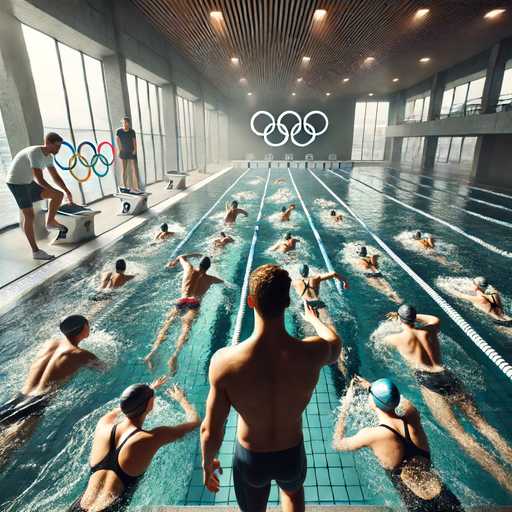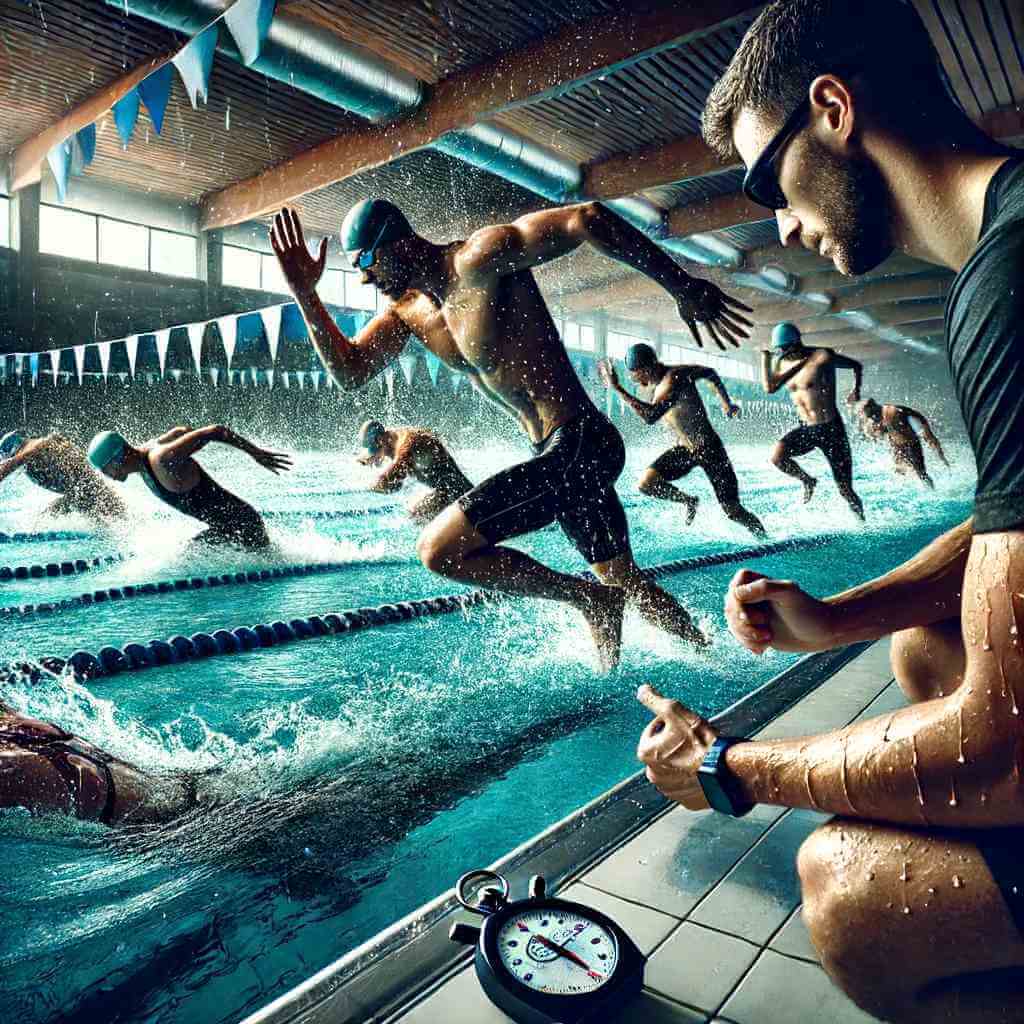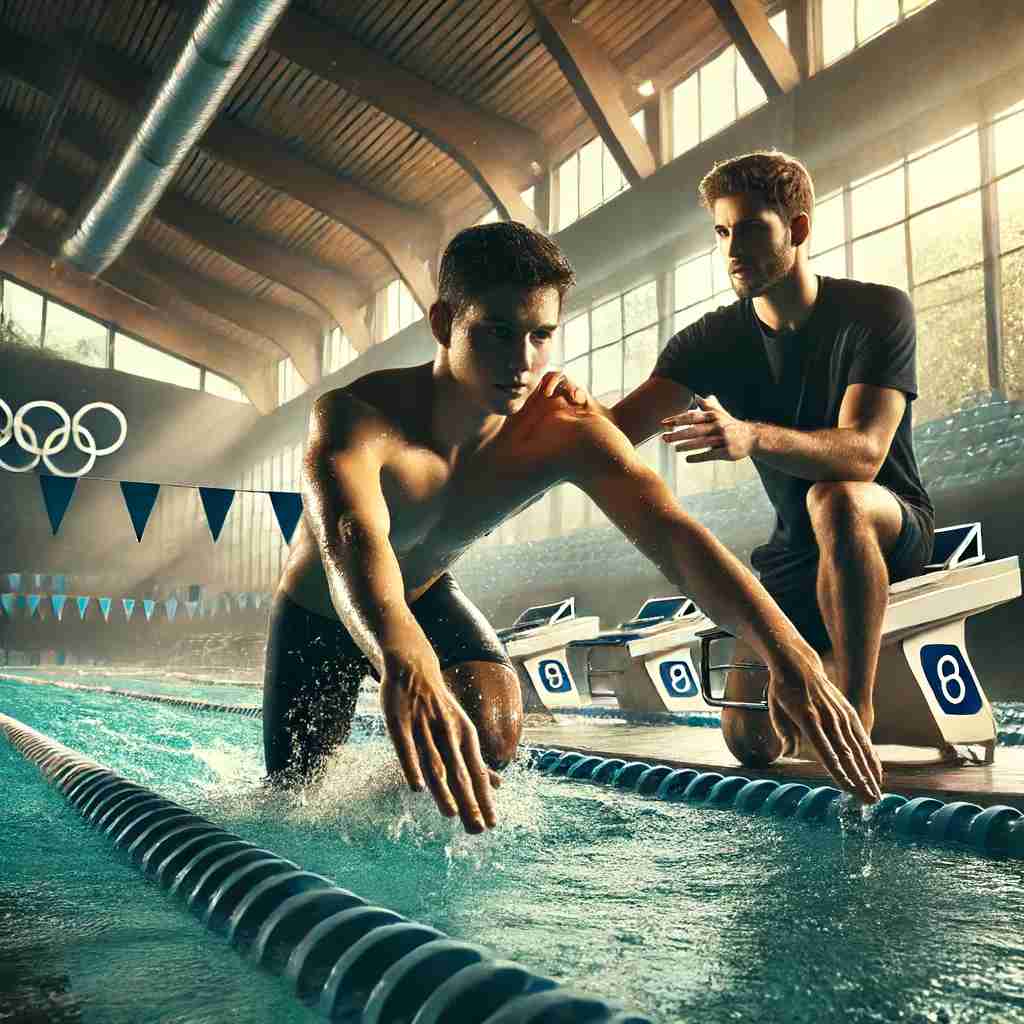Becoming an Olympic swimmer is a dream for many young athletes around the world. The journey to the Olympic podium is one of dedication, perseverance, and an early start.
But how early should you begin training to have a realistic shot at reaching the Olympics? Let’s dive into the factors that influence the ideal starting age for aspiring Olympic swimmers.
Early Beginnings: The Foundation of Future Champions
Most Olympic swimmers start swimming at a very young age. Many begin formal training between the ages of 6 and 9. At this stage, the focus is on learning proper technique and developing a love for the sport. Here are a few key reasons why starting early is beneficial:
Technical Skill Development:
Young children are particularly adept at learning new skills. Starting early allows them to master the complex techniques of different swimming strokes.

Flexibility and Strength:
Early training helps build the flexibility and muscle strength necessary for competitive swimming.
Water Familiarity:
Comfort and confidence in the water are crucial. Early exposure helps swimmers feel at ease, reducing the fear and anxiety associated with competitive swimming.
The Pre-Teen Years: Building a Competitive Edge
Between the ages of 10 and 12, training becomes more structured. During these years, swimmers often join competitive swim clubs and start participating in local and regional competitions. The focus shifts to:
Endurance and Speed:

Building cardiovascular endurance and improving speed through regular training sessions.
Skill Refinement:
Perfecting techniques and ensuring swimmers can execute strokes efficiently under various conditions.
Introduction to Competition:
Gaining experience in competitive settings, learning to handle race-day pressure, and developing a competitive mindset.
Teenage Years: Intensive Training and Specialization
By the time swimmers reach their teenage years, around 13 to 18, training intensifies. This period is critical for those aiming for the Olympics. Training regimes typically involve:
High-Volume Training:
Swimmers may train up to six days a week, often with multiple sessions per day.
Specialization:
Athletes start focusing on their strongest strokes and distances, tailoring their training to excel in specific events.
Mental Toughness:
Developing mental resilience through visualization techniques, goal-setting, and learning to cope with the highs and lows of competitive sports.
The Role of Coaches and Support Systems
No swimmer reaches the Olympics alone. The guidance of experienced coaches, supportive families, and a network of mentors is indispensable. Coaches play a pivotal role in designing training programs, offering technical insights, and motivating athletes to push their limits.
Individual Variability: It’s Never Too Late
While early specialization is common, it’s important to remember that every swimmer’s journey is unique. Some Olympic swimmers have started competitive swimming later and still reached the pinnacle of the sport. Factors such as natural talent, dedication, and access to quality training can sometimes compensate for a later start.

A Balance of Early Start and Passion
Starting early certainly provides a solid foundation for becoming an Olympic swimmer, but it’s not the only pathway to success. Passion, persistence, and the willingness to put in the hard work are equally important. Whether you’re diving into the pool at age 6 or 16, the dream of becoming an Olympic swimmer is within reach with the right mindset and support.
So, lace up those swim goggles, dive into the water, and start your journey toward Olympic Swimming greatness. Remember, the earlier you start, the more time you have to hone your skills, but it’s the love for the sport and relentless pursuit of excellence that will ultimately propel you to the top.

